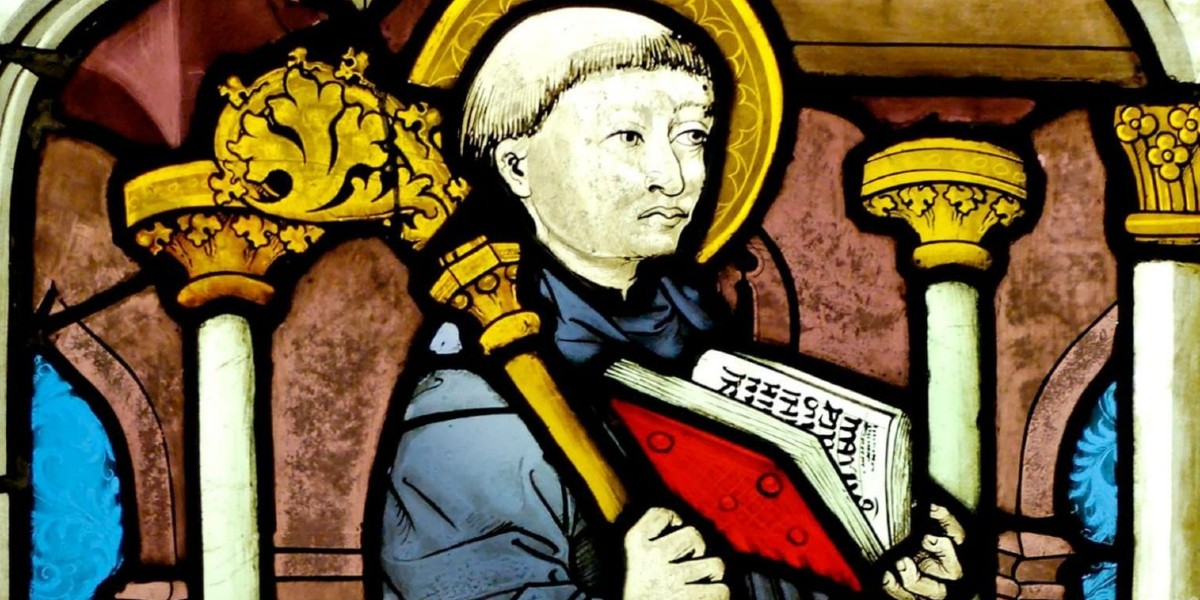Regina Caeli – Queen of Heaven, Rejoice!
The Regina Caeli, Latin for “Queen of Heaven,” is a hymn and prayer ...

William of St.-Thierry explains the history of salvation, culminating in the Incarnation, as a revelation of the love of God who comes to empower us to love him in return. The advent of the Savior is the coming of Jesus Christ, the apostle of love who loved us first.
Truly you alone are the Lord. Your dominion is our salvation, for to serve you is nothing else but to be saved by you!
O Lord, salvation is your gift and your blessing is upon your people; what else is your salvation but receiving from you the gift of loving you or being loved by you?
That, Lord, is why you willed that the Son at your right hand, the man whom you made strong for yourself, should be called Jesus, that is to say, Savior, for he will save his people from their sins, and there is no other in whom there is salvation. He taught us to love him by first loving us, even to death on the cross. By loving us and holding us so dear, he stirred us to love him who had first loved us to the end.
And this is clearly the reason: you first loved us so that we might love you – not because you needed our love, but because we could not be what you created us to be, except by loving you.
In many ways and on various occasions you spoke to our fathers through the prophets. Now in these last days you have spoken to us in the Son (Hebrews 1), your Word; by him the heavens were established and all their powers came to be by the breath of his mouth.
For you to speak thus in your Son was to bring out in the light of day how much and in what way you loved us, for you did not spare your own Son but delivered him up for us all. He also loved us and gave himself up for us.
This, Lord, is your Word to us, this is your all-powerful message: while all things were in midnight silence (that is, were in the depths of error), he came from his royal throne, the stern conqueror of error and the gentle apostle of love.
Everything he did and everything he said on earth, even enduring the insults, the spitting, the buffetting – the cross and the grave – all of this was actually you speaking to us in your Son, appealing to us by your love and stirring up our love for you.
You know that this disposition could not be forced on men’s hearts, my God, since you created them; it must rather be elicited. And this, for the further reason that there is no freedom where there is compulsion, and where freedom is lacking, so too is righteousness.
You wanted us to love you, then, we who could not with justice have been saved had we not loved you, nor could we have loved you except by your gift. So, Lord, as the apostle of your love tells us, and as we have already said, you first loved us: you are first to love all those who love you.
Thus we hold you dear by the affection you have implanted in us. You are the one supremely good and ultimate goodness. Your love is your goodness, the Holy Spirit proceeding from the Father and the Son! From the beginning of creation it was he who hovered over the waters – that is, over the wavering minds of men – offering himself to all, drawing all things to himself. By his inspiration and holy breath, by keeping us from harm and providing for our needs, he unites God to us and us to God.
FOR A FREE ADVENT “CHEAT SHEET” with many practical suggestions on how you and your family or study group can hope to make this the best Advent and Christmas Season ever, either sign up for free on our email list or confirm your existing subscription and then email us at [email protected] asking for your free copy. This document is not posted publicly on our website and is for our subscribers only.
For more great resources for Christmas, visit the CHRISTMAS INCARNATION section of the Crossroads Initiative Library.
This exceprt by William of St.-Thierry which extolls Christ as the apostle of love who first loved us is an excerpt from William’s discourse On the Contemplation of God (Nn. 9-11; SC 61, 90-96). It is used in the Roman Office of Readings on Monday of the Third Week of Advent with the accompanying biblical reading taken from Isaiah 30:18-26.
Banner/featured image Stained glass of St Bernard by an unknown artist. Public domain.
No Comments